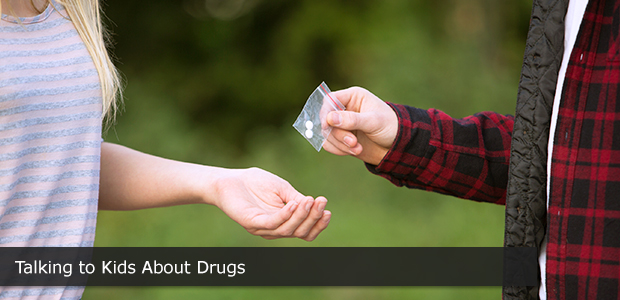Talking to Kids About Drugs

Back to school is an exciting and challenging time for both parents and children. Studying. Exams. Friendship issues. Projects. Teams. Concerts. Decisions, decisions and more decisions. The list goes on.
Sometimes kids will turn to drugs and alcohol as a way to escape or numb themselves from the effects of everyday life. As an emergency room doctor and medical toxicologist, I come across the effects of drug and alcohol use every day at my workplace…the hospital. Lately it’s been fentanyl, fentanyl, fentanyl, followed by alcohol, and over the counter medications like antihistamines and decongestants.
I have a 14 year old daughter and a 10 year old son. Parenting is hard work, there’s no doubt about it. We do our best to be involved in their school lives, cheer them on during activities, and keep them safe. But what about when they start going to parties or clubs when they’re older? How can I be sure that I’ve given them the tools to make smart choices about alcohol and drugs?
Well, the first thing is to start having the discussions early, even as early as kindergarten. Now, of course the discussion you have with a five year old is very different from that with a 15 year old, but the sooner your children understand the importance of making healthy choices and improving their self-esteem, the better off they’ll be in the long run.
Here are a few other tips that might be helpful for you to begin the discussion with your own child:
- Try speaking to your child side by side instead of face to face; it may seem less threatening that way.
- Be a good listener. Give them room to participate and ask questions. Respect their opinion.
- Use the news. Fortunately (or unfortunately) there is no shortage of stories about drugs on TV, the newspaper, or the internet? Need proof? Just type in “drug stories” on your favorite search engine and see how many hits you get. Use stories, current events, or discussions on school life as an opportunity to ask them for their opinion on it. “What did you think about that?” might be one way to open up the discussion.
- Don’t preach. Kids are more likely to be turned off the message if they think you’re preaching from the pulpit.
- Remember to tell your child that you love them and you’re concerned about them.
- And finally, it’s better to have this discussion many times. Mini-conversations are better than long boring ones!
If you think your child might be using drugs, Health Canada’s Drug Prevention website offers some things to watch for:
- Changes in friends
- Negative changes in schoolwork, missing school, or declining grades
- Use of incense, room deodorant, or perfume to hide smoke or chemical odors
- Subtle changes in conversations with friends, e.g. more secretive, using “coded” language
- Increase in borrowing money
- Evidence of drug paraphernalia such as pipes, rolling papers, etc.
- Evidence of use of inhalant products (such as hairspray, nail polish, correction fluid, common household products); Rags and paper bags are sometimes used as accessories
- New use of mouthwash or breath mints to cover up the smell of alcohol
- Missing prescription drugs
Remember that underneath the persistent use of alcohol and drugs is the disease of addiction. Addiction is not a disease of willpower, weakness, or moral degeneracy. It’s a brain disease. Blaming and shaming those who abuse alcohol and drugs doesn’t help. The good news is that help is available from AHS.
Finally, as we send our kids back to school, it’s important to remember that one of the best things we as parents can do for our kids is to be healthy ourselves. Remember the instructions the flight attendant gives before takeoff: “Put your own oxygen mask on first before assisting others.”
Comment below: How are you going to begin the discussion with your children about alcohol and drugs?
Resources:
AHS Addiction and Mental Health: http://www.albertahealthservices.ca/amh/amh.aspx
Fentanyl/Take home naloxone – www.drugsfool.ca
Health Canada Drug Prevention - http://healthycanadians.gc.ca/drug-prevention-drogues/index-eng.php
Partnership for a Drug Free Canada - http://www.canadadrugfree.org/










